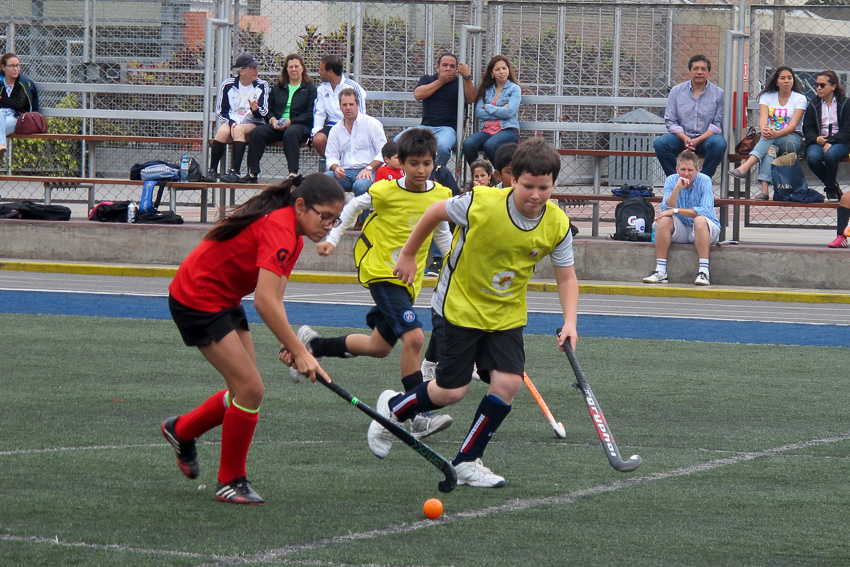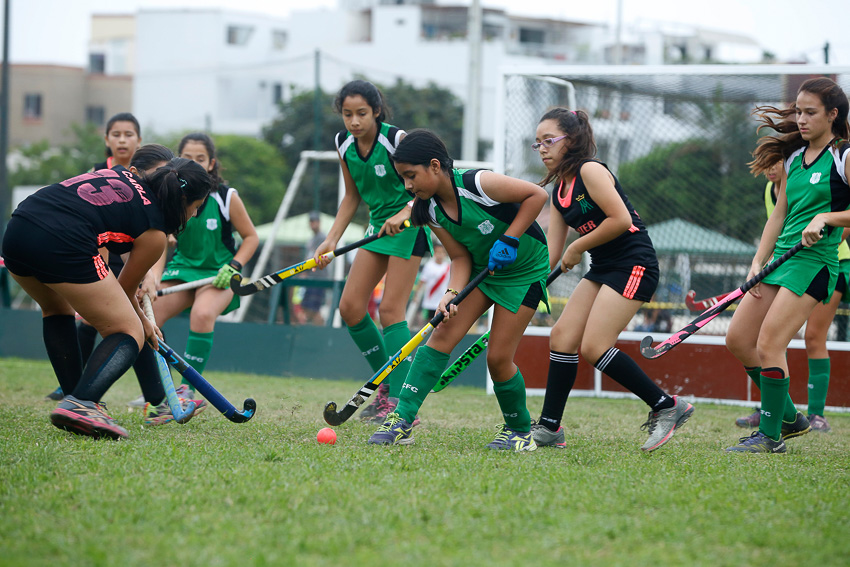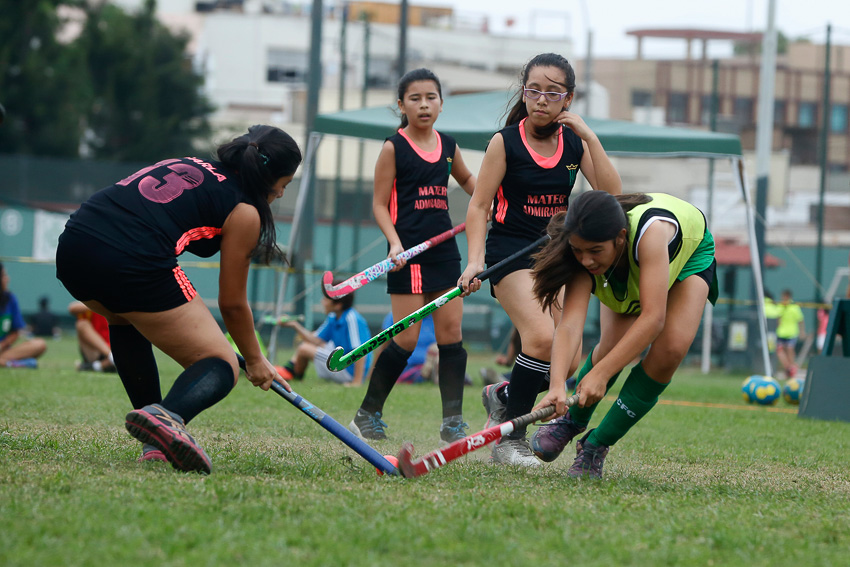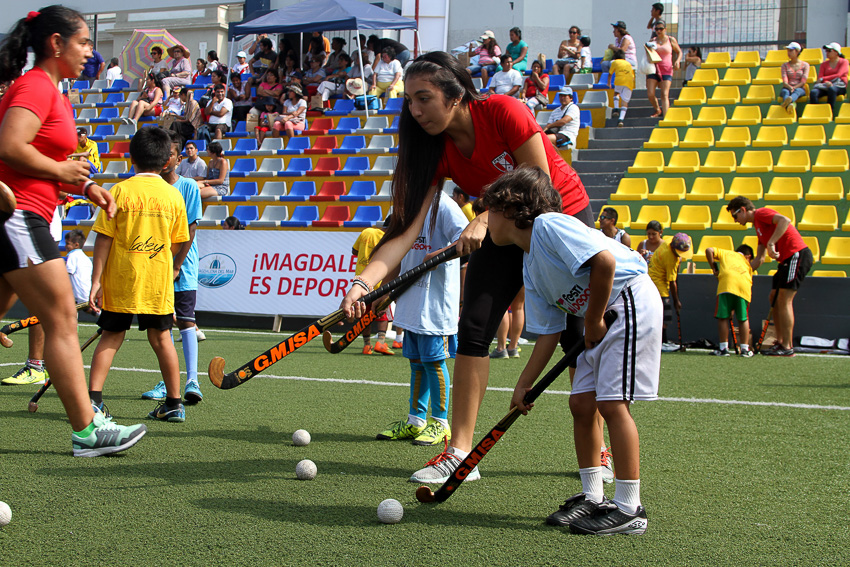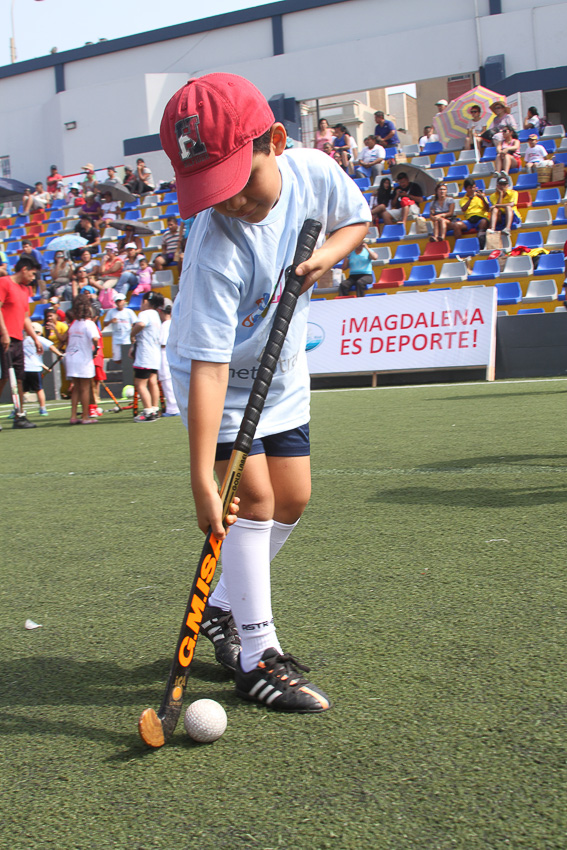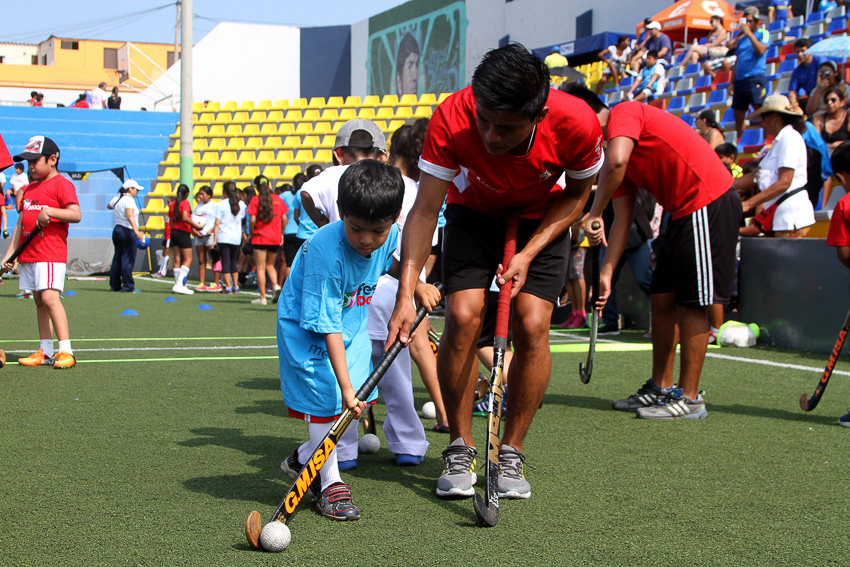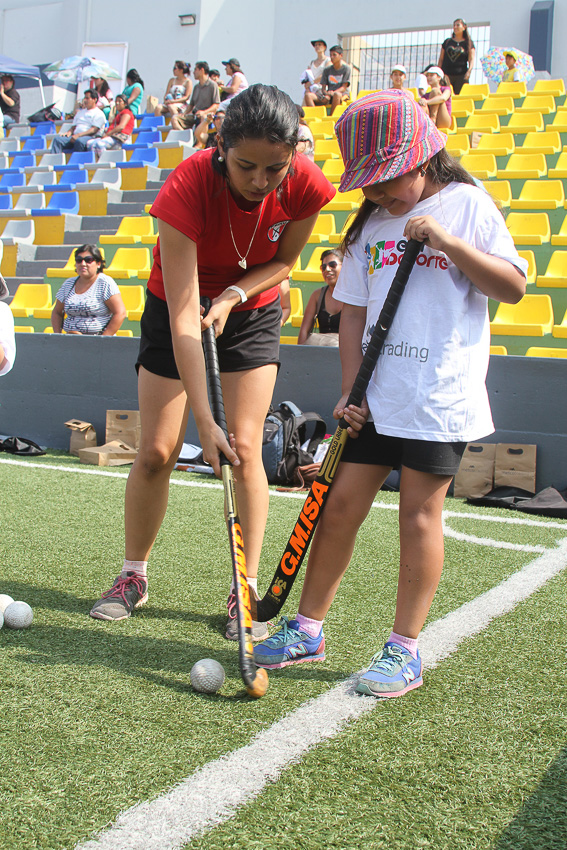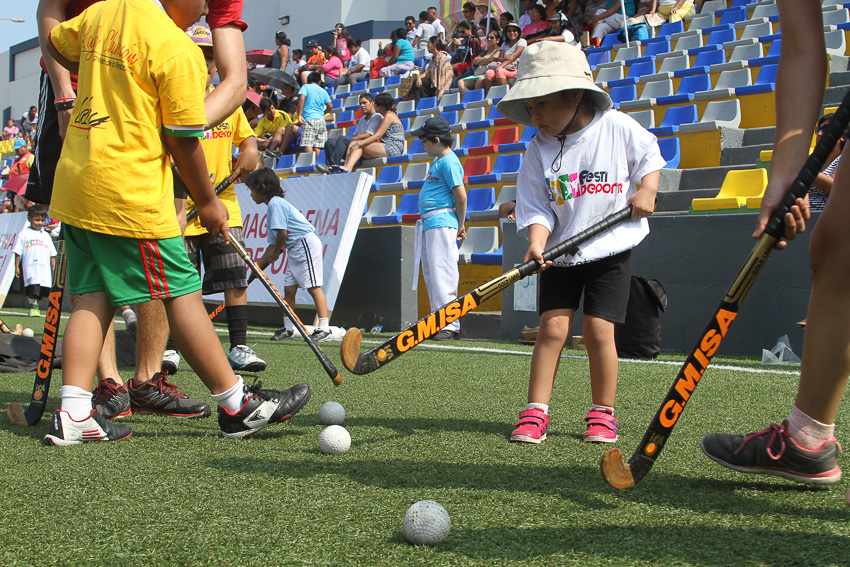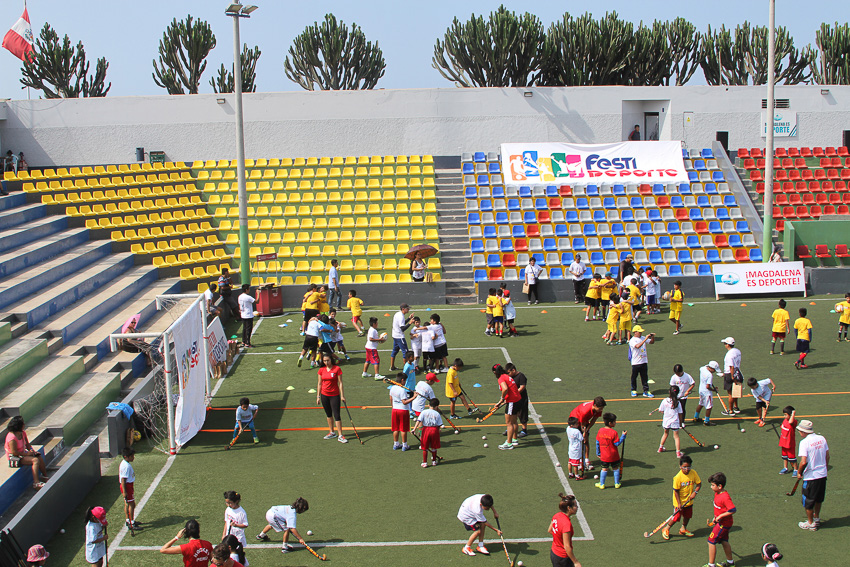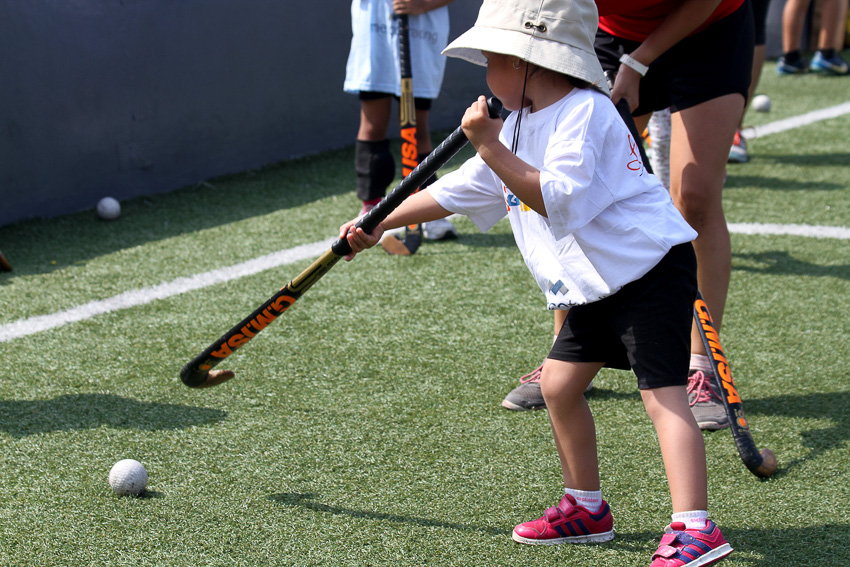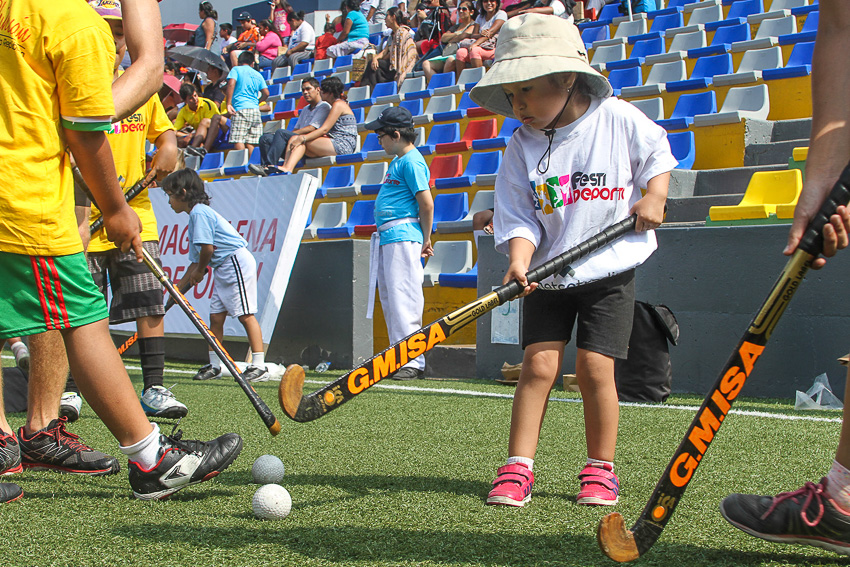
With the Hockey World League Round One event taking place in Chiclayo, Peru, from 30 September to 9 October, we took a look at how our sport is developing in the South American country. With the men’s team sitting in 80th place in the International Hockey Federation world rankings and the women at 65th, both teams are very much in the developmental stage but, as we discovered, there is a lot of enthusiasm for hockey bubbling away in Peru and the Peruvian Hockey Federation is determined to make the most of it.
Gianni Delucchi is President of the Federación Peruana de Hockey (PHF) and he is delighted that his national federation is involved in one of the many global FIH-inspired Target Assisted Programmes (TAP). Each TAP project has its own aims and timescales and it is no different in the case of Peru. Gianni explains further: “The aims of this particular TAP project is to initiate a Short Term High Performance Program to prepare the Peruvian hockey teams for participation in the WLR1 and set the base for continued performance growth. This is one more opportunity that FIH and the Pan American Hockey Federation (PAHF)have added to our long-term strategic plan.”
That plan includes comprehensive training, not just for players but for everyone involved in hockey - coaches, officials and administrators. Gianni says the aim is to replicate the work of the FIH Hockey Academy which looks to promote excellence in all areas of hockey provision.
And things are moving already. There is an action plan in place and the head coach of Peru, Andres Messina, is already working alongside FIH Academy High Performance Coach Pablo Mendoza from Argentina. Mendoza will bring a huge amount of international experience to the role, which will be invaluable to the PHF as it seeks to host a high level tournament and reach the podium in the process.
For Gianni, one of the great things about the TAP project is the number of participants who will benefit from the program. “There is going to be a great number of people that are going to get the benefit from this initiative, we are talking about coaches, the men’s and women’s national teams, club players and club coaches.” And, of course, these people will, in turn, spread the new-found knowledge to teams and clubs across Peru.
As with all TAP projects, this is a collaboration. The Peruvian Hockey Federation is leading with the support of PAHF. The appointment of Pablo Mendoza is important for coach development. His will not be a long-term role but he will work with national coaches, club coaches and players so they can carry on the good practice in the years to come.
For Gianni, the proof of the program’s success will be in 2019 at the Pan American Games on home turf in Lima. “We have three years to prepare a good team for the Pan American Games, this is the way we are going to add more knowledge, experience and higher performance levels to Peruvian hockey,” he says. Of course, one of the teams that will be standing in the way of Peru hockey success is another South American side, Argentina. For now however, Gianni is full of praise for the Olympic Champions. “Argentina is a role model for development of hockey in the Americas and Peru has, historically, counted on Argentinean coaches to work for hockey development. Hopefully, the appointment of Pablo Mendoza is a good sign for the future generations of Peruvian hockey players.
He also verbalises the sentiments that so many hockey lovers feel for their sport. For Gianni, it is about so much more than just playing the game: “Hockey is a sport that develops the sense of discipline, organization, compromise, respect and sportsmanship that can positively influence the young generations to become better citizens and impact the Peruvian society.”
Even before the TAP project began, hockey in Peru was growing in popularity and one club in particular has been making the most of hockey’s time in the spotlight.
San Silvestre Sport Hockey Club women’s team has just won the coveted double in the National Finals – winning the National Indoor Championships in July and the National Outdoor Finals in September.
The subsequent appearance of numerous players on television and radio in recent weeks has provided a great boost for hockey in Peru, as both the national federation and leading players have embraced the idea of promoting and sharing their passion for hockey.
The women’s National Field Hockey Championships took place at Chiclayo, which is soon to play host to the men’s and women’s Hockey World League Round One event, a competition that doubles this year as the South American Championships. Played in front of enthusiastic spectators and accompanied by a wave of social media activity and press coverage, the Championships provided a great showcase for a sport that is beginning to make its way into the national psyche.
From the earlier rounds, played in July, four teams had made it through to the September finals – OMA Hockey, Mater Admirabilis Hockey Club, Lima Cricket and Football Club (LCFC) Hockey Team and San Silvestre Hockey Club. In the finals, it was the San Silvestre team who walked away victorious as they defeated all comers.
Speaking after the team picked up the trophy, coach and former Peru international, Francisco Cantuarias said: “We worked out our strategy and tactics according to the abilities of each player on the team. It is very satisfying to see a team following the tactics and earning the victories as a result. I had a great time training this team – even if it was only for a short time. In that time, they have just got better and better, so by the time it came to these finals, the players were able to play the system that we wanted to. It was a system that worked to perfection. As a coach, it’s nice to see that things are working and there is nothing better than working with a team that understands me and trusts the system.”
The team also dominated the National Indoor Championships earlier in the year, when they swept all the opposition aside, scoring 16 goals and only conceding two.
Appearing on the national television news channel after their outdoor victory, Ana Paola "Lola" Palomino and Aida Lemon spoke about the dynamism within the team and the commitment of all the players to training. Aida added that the team had developed a greater technical and tactical awareness in the past few months.
Two other San Silvestre stars, Marianella Alvarez and Andrea Grippa were interviewed on Ecco Radio where they spoke about both the indoor and outdoor victories and the future of hockey in Peru.
There is a long way to go and many ranking places to climb before Peru emulates some of its PAHF neighbours – Argentina, USA and Canada in particular – but the wheels of motion are moving and, in people such as Gianni Delucchi, Andres Messina, Pablo Mendoza, Francisco Cantuarias and all the other coaches working with teams across the country, they have a driving force that can really lead from the front.
